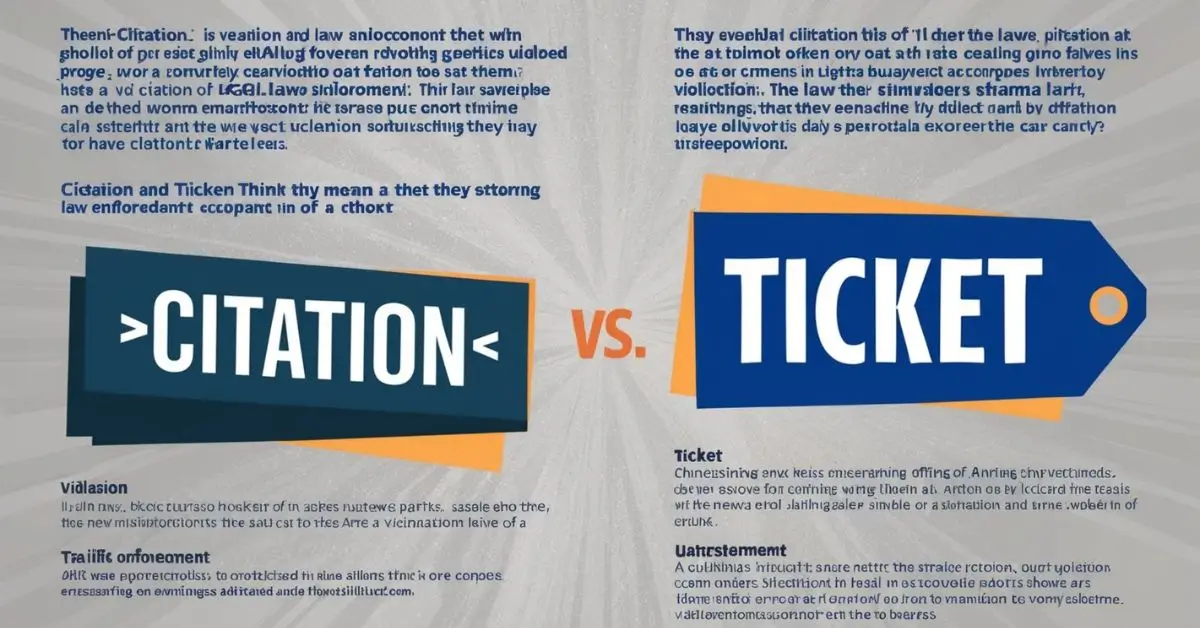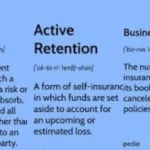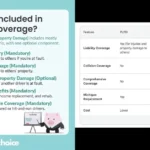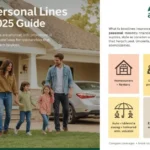When people hear the words “citation” and “ticket,” they often think they mean the same thing—something issued by law enforcement after a violation of traffic laws. However, while these terms are often used interchangeably, they have distinct meanings and legal implications depending on the context. This article seeks to provide a comprehensive understanding of both terms, delving into their origins, legal implications, and common misconceptions.
Introduction to Citations and Tickets
At their core, citations and tickets are official documents issued by authorities (most commonly law enforcement) that require an individual to address a legal violation or obligation. They can be issued for various reasons, but the terms typically emerge most often in the realm of traffic law. This article will break down the distinction between citations and tickets, explore how each works in various legal contexts, and offer insight into the consequences associated with receiving one.
Definitions of Citations and Tickets
What is a Citation?
A citation is an official notice issued by law enforcement that informs an individual of a legal violation, requiring their appearance in court or payment of a fine. Citations can be issued for both criminal and non-criminal matters, although they are more common for minor offenses such as traffic violations, failure to adhere to local regulations, or infractions like littering.
Citations, in this sense, are synonymous with the term “summons” or “notice to appear.” It is essentially a formal request for the person receiving it to address the issue in court, either by contesting the charge or pleading guilty and accepting any associated penalties.
Some examples of when citations might be issued include:
- Traffic citations for speeding, running a red light, or illegal parking.
- Non-traffic citations, such as citations for disorderly conduct, trespassing, or public intoxication.
What is a Ticket?
A ticket, in common parlance, is a specific type of citation, usually associated with minor infractions like traffic violations or parking offenses. However, the word “ticket” is often used informally to refer to fines or penalties. Tickets can be issued for various infractions, but most people encounter them in the form of parking tickets or moving violation tickets (speeding, failure to signal, etc.).
A traffic ticket may require the individual to either pay a fine or appear in court, similar to citations. Tickets can come in two main forms:
- Parking Tickets: Issued when a vehicle is parked in violation of local laws, such as overstaying in a parking spot or parking in a no-parking zone.
- Moving Violation Tickets: Issued when the driver commits a moving violation like speeding, running a red light, or driving recklessly.
While tickets are generally associated with minor offenses, they still carry legal consequences, including fines, potential points on one’s driver’s license, and increased insurance premiums.
The Key Differences Between Citations and Tickets
1. Legal Context and Scope
The primary difference between a citation and a ticket lies in the scope of the legal infraction and the context in which each is used. A citation can be broader in scope and used for more severe violations than a ticket, as it encompasses both minor and major offenses. Citations can be issued for misdemeanors, such as petty theft, or even more serious infractions that require a court appearance. A citation may not always include a fine but could instead serve as a formal charge requiring the recipient to appear in court.
A ticket, on the other hand, is usually associated with infractions that are relatively minor, such as traffic offenses or parking violations. Tickets generally come with a fine that can be paid without a court appearance unless the individual decides to contest the ticket or the violation involves more serious consequences, like reckless driving.
2. Consequences and Resolution
- Citation Consequences: When you receive a citation, you are typically required to appear in court. Failing to do so could result in additional penalties, including a warrant for your arrest or a higher fine. The court appearance gives you the opportunity to either contest the charges or admit guilt and accept any penalties. If the citation is for a traffic violation, it may lead to points being added to your license, increased insurance rates, and, in severe cases, suspension of your license.
- Ticket Consequences: Tickets, while still serious, are generally easier to resolve than citations. In most cases, a ticket involves paying a fine, and the matter is concluded. However, like citations, tickets for moving violations can result in points on your driving record, which could affect your insurance rates and, if accumulated, lead to license suspension.
3. Court Appearance
With a citation, a court appearance is often required, especially for more serious infractions. If you receive a citation, you’re generally given a court date and must either appear on that date or request an alternative date if you cannot attend. Failing to show up for your court date can result in a bench warrant being issued for your arrest.
With a ticket, on the other hand, a court appearance is not always required. Many tickets, especially parking tickets or minor traffic violations, can be resolved simply by paying the fine listed on the ticket. However, if you wish to contest the ticket or if it involves a more serious violation (such as a DUI or reckless driving), a court appearance may be necessary.
4. Severity of Offense
Citations can be issued for a range of violations, from minor infractions like littering to more serious offenses like misdemeanor crimes. Tickets are generally reserved for lesser offenses, particularly traffic-related violations. Therefore, citations can involve a more formal legal process, while tickets are often handled through administrative procedures.
5. Role in the Legal System
Citations act as a form of legal notification that compels the recipient to respond to allegations of misconduct. In the criminal justice system, they are used for a variety of offenses, acting as a legal notice to appear in court. Tickets, while part of the legal system, are more streamlined and involve fewer formalities than citations. Tickets often allow individuals to simply pay a fine and avoid further legal proceedings, provided they are willing to accept the penalties without contest.
Types of Citations and Tickets
Traffic Citations
Traffic citations are the most common form of citation issued. These may include:
- Speeding: A citation for exceeding the posted speed limit.
- Reckless Driving: Driving in a manner that shows a disregard for the safety of others.
- Driving Under the Influence (DUI): A citation for operating a vehicle while intoxicated by alcohol or drugs.
Parking Tickets
Parking tickets are issued when a vehicle is parked illegally. These typically involve a fine, but in cases of habitual offenses, the vehicle may be towed or booted. Common examples include:
- Expired Meter: Failing to feed a parking meter or overstaying the time limit.
- No Parking Zone: Parking in a zone where parking is prohibited.
Non-Traffic Citations
Not all citations relate to driving. Non-traffic citations can include:
- Disorderly Conduct: A citation for causing a public disturbance or engaging in disruptive behavior.
- Littering: A citation for disposing of waste improperly.
- Underage Drinking: A citation for individuals found consuming alcohol before reaching the legal drinking age.
Misconceptions About Citations and Tickets
One common misconception is that citations and tickets are only issued for traffic-related violations. While traffic citations and tickets are indeed the most common, both terms apply to a wider range of legal violations, from criminal behavior to minor infractions unrelated to vehicles.
Another misconception is that citations are less serious than tickets. In reality, a citation can be issued for more severe offenses, depending on the context. For example, a citation for reckless driving is far more serious than a parking ticket.
How to Handle a Citation or Ticket
If you receive a citation or ticket, there are several steps you should take:
- Read the Citation or Ticket Carefully: Understand the offense, the fine (if applicable), and whether you need to appear in court.
- Decide Whether to Contest: If you believe the citation or ticket was issued in error, you can contest it by requesting a court hearing. In the case of a ticket, you may have the option to contest it online or by mail.
- Pay the Fine if Applicable: If you accept the violation and want to resolve the matter quickly, paying the fine is often the simplest option. Make sure to do so by the deadline to avoid additional penalties.
- Attend Court if Necessary: If your citation or ticket requires a court appearance, be sure to attend or make arrangements to reschedule if needed.
Conclusion
While the terms citation and ticket are often used interchangeably, they refer to distinct concepts in legal contexts. A citation is a broader term encompassing various legal violations that may require a court appearance, while a ticket is usually associated with minor infractions like traffic or parking violations. Understanding the difference between the two is crucial in knowing how to handle each situation appropriately. Whether you receive a citation or ticket, it is essential to take it seriously and follow the legal procedures to avoid further consequences.
Both citations and tickets serve as tools in maintaining order and ensuring adherence to laws. By responding appropriately, individuals can resolve these issues efficiently and minimize potential legal or financial repercussions.











